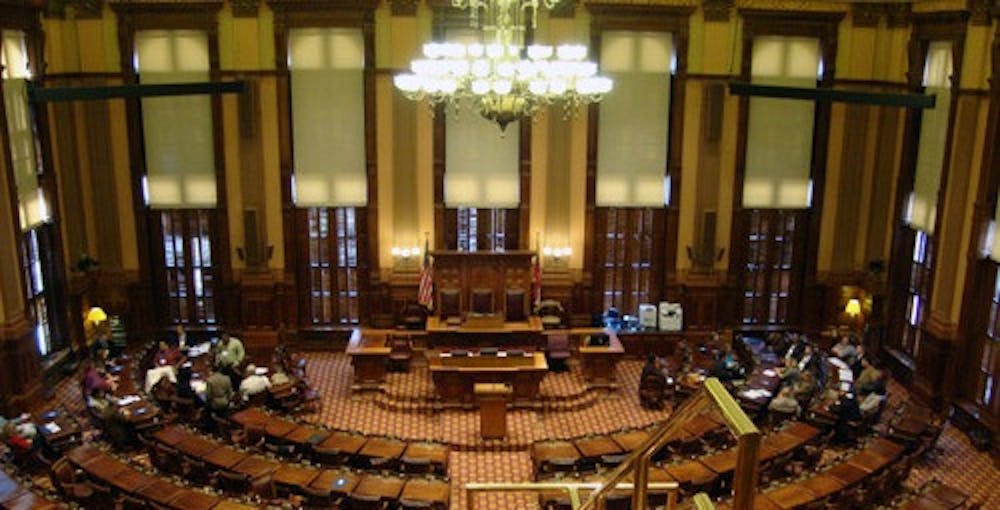ATLANTA – A recently proposed overhaul of the HOPE scholarship could mean that many Mercer students will have to pay at least $400 more for tuition when they return to campus this fall – and possibly up to $1,200 more in the coming years depending on future lottery revenues.
The Georgia House approved a bill 155-22 Tuesday that would reduce the amount of HOPE scholarship funds awarded annually to in-state students attending private universities such as Mercer by a minimum of 10 percent, from $4,000 to $3,600. The bill is now set move to the Senate for a final vote in roughly two weeks.
House Bill 326 is a part of Gov. Nathan Deal's plan to save the state’s lottery-funded education programs - including the college scholarships and the state's prekindergarten program - from going broke.
To compensate for the HOPE fund’s currently estimated $400 million budget shortfall, the current bill would slash public and private university HOPE scholarships by 10 percent across the board for all in-state students with a 3.0 to 3.3 GPA.
Current public and private college students with a 3.3 GPA or higher would not be affected by the proposed cuts, however, as they would qualify for a newly-formed “Zel Miller” scholarship that would retain all the benefits of the old HOPE scholarship.
Perhaps most significantly, H.B. 326 would make the amount of future HOPE scholarships dependent on the amount of lottery revenue generated, meaning individual HOPE scholarships could dip to as low as 70 percent of what they are now in the coming years if the funds are not available.
At public universities like the University of Georgia and Georgia State, students with a 3.0 to 3.3 GPA would only receive 90 percent of their tuition payments for the 2011-2012 academic year.
At private universities such as Mercer – where HOPE only pays partial tuition – students in the 3.0 to 3.3 GPA range would incur a similar 10 percent scholarship reduction from $4,000 to $3,600 for the coming year.
That means Mercer students receiving HOPE who have less than a 3.3 GPA would be required to come up with an additional $400 to cover the cost of the next two semesters, and could be forced to pay as much as $1,200 more for each of the coming academic years if lottery revenues don't pan out as hoped.
To qualify for the new Zel Miller scholarship and maintain the old HOPE benefits, students must have either maintained a 3.3 GPA in college, or enter in from high school with a minimum of a 3.7 GPA as well as a score of at least 1200 on the SAT or 26 on the ACT.
Mercer President William B. Underwood said in a statement to The Cluster on Wednesday that although he regrets the fact that some Mercer students may lose part of their scholarship packages, he supports the House’s overall aim in passing the bill.
"It is clear that the current level of funding for HOPE scholarships is unsustainable. While I regret that many Mercer students will receive a $400 reduction in their HOPE grant, I believe that the governor's plan is a reasonable and measured response to the financial crisis facing the HOPE scholarship program,” Underwood said.
The Georgia Tuition Equalization Grant would not be affected by passage of H.B. 326, which means that qualified Mercer students would continue to receive the GTEG funding of $750 per academic year.
WEIGH IN ON THIS STORY:
[poll id="2"]
For more on this developing story, read the next issue of The Cluster, or check back in at www.mercercluster.com for updates.
Planned cutbacks to trim HOPE scholarships by 10 percent





